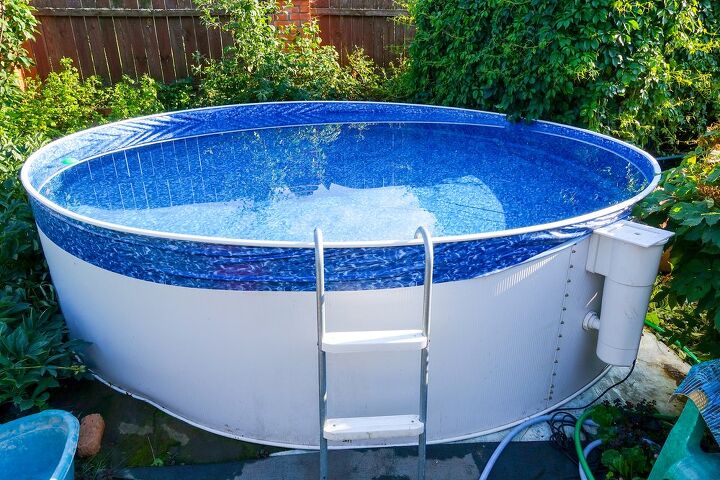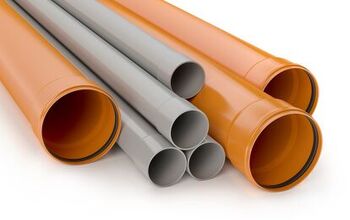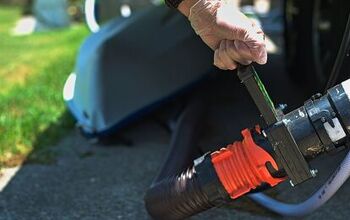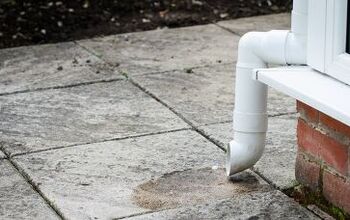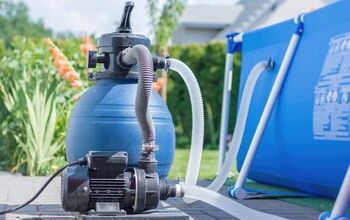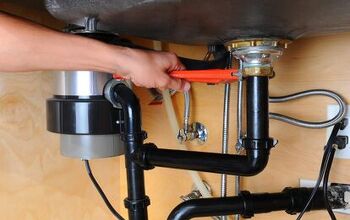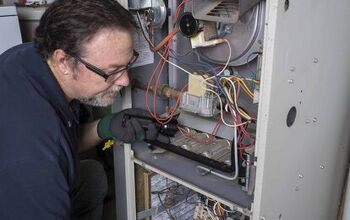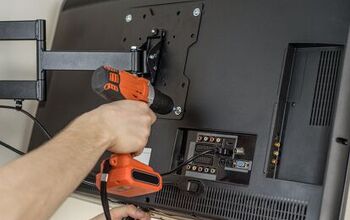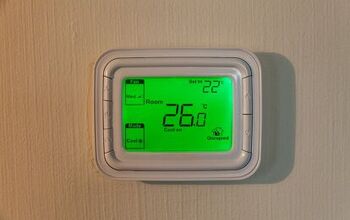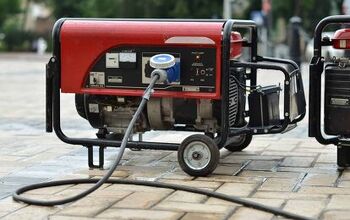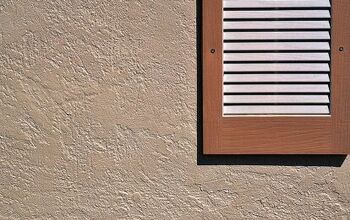What Size PVC Pipe For An Above-Ground Pool?

You have had your above-ground pool for several seasons and notice that the flexible pipe provided by the manufacturer is beginning to show its age. To keep your pool and filter operating properly, you consider replumbing your pool with PVC pipe. However, PVC pipe is not the same size as the flexible tubing, and you wonder what PVC pipe you should use for your above-ground pool.
Most above-ground pools use hoses and fittings that are either 1.5 inches or 2 inches in diameter. The consensus among pool maintenance professionals is to keep the pipe size as close to the original as possible. However, replumbing your above-ground pool with PVC requires adapting your pool and pump to fit the PVC fittings.
Many above-ground pool packages use flexible tubing with barbed or compression style fittings. To replumb your above-ground pool to PVC pipe, you need special adapters. In some cases, these adapters are available from your pool manufacturer. There are also other considerations to take when using PVC to plumb your above-ground pool.
Do You a Need Pool, Spa, or Hot Tub Contractor?
Get free, zero-commitment quotes from pro contractors near you.

Which Type of PVC Pipe Should I Use for my Above-Ground Swimming Pool?
Preparing to replumb your above-ground swimming pool can quickly become confusing. There are many types of PVC pipe and fittings from which to choose. You should select the PVC pipe with the proper specifications for structural and monetary reasons.
Types of PVC Pipe
PVC pipe is sold in two types, schedule 40 and schedule 80. The major difference between these two types is the thickness of the pipe wall. Schedule 80- PVC pipe has thicker walls than schedule 40 and has higher pressure ratings. Above-ground pools don’t need schedule 80 PVC pipes.
Most above-ground pool water circulation systems operate at between 10 to 15 pounds per square inch of pressure. Schedule 40 PVC pipe 2 inches in diameter rates at 280 pounds per square inch. You can see that this gives you a wide margin of safety. Using schedule 80 PVC pipe for your above-ground pool system is overkill and wastes money.
Consider Flexible PVC Pipe
There are several types of flexible PVC pipes on the market suitable for use with above-ground pool systems. In fact, many hot tubes and spa manufacturers routinely use flexible PVC in their products. Flexible PVC pipe on an above-ground pool system makes sense for several reasons.
- Flexible PVC is easier to install. Your measurements don’t need to be as precise. When plumbing a pool with a rigid schedule 40 PVC pipe, you must get the measurements very close to make the connections fit properly. With flexible PVC, there is more wiggle room for your construction.
- Many above-ground systems leave the piping exposed. PVC pipe is not known for its resistance to damage from impacts or other external forces. Flexible PVC is more forgiving of bumps, impacts and other external forces.
- Above-ground swimming pools are known to move as the water in the pool is disturbed. The pool wall and liner may expand, shift, or vibrate as people use the pool. Rigid PVC pipe may be stressed with this movement and eventually develop cracks or breaks. Using flexible PVC allows the plumbing system to move with the pool avoiding these problems.
- Flexible PVC is more forgiving of the vibrations from an operating pool filter pump. Rigid schedule 40 PVC may not tolerate the constant vibration of the pump. Adding a length of flexible PVC to the inlet and outlet on your pool pump is usually a good idea.
All in all, flexible PVC pipe is an excellent option when replumbing your pool filtration system. Flexible PVC may be a bit more expensive upfront, but you will often experience fewer maintenance issues in the long run.
Is Pipe Size Really an Issue?
Matching the size of the PVC pipe with the demands and requirements of your pool system is always the best option. Upsizing the PVC pipe to a larger diameter doesn’t improve performance or efficiency. The fittings on the pool and the filter system can’t be upsized and will continue to limit water flow.
1.5 inch and 2 inch PVC pipe is the accepted standard when replumbing an above-ground pool. The typical above-ground pool pump and filter are designed to deliver between 30 and 60 gallons of water per minute. A 1.5 inch PVC pipe will easily flow more than 120 gallons per minute.
In most cases, there is no need to use a PVC pipe larger than 2 inches in diameter to plumb your above-ground pool water system. However, trying to get more flow by increasing the pipe size is impossible. The controlling factor is the size and rating of the pump. To increase flow rates, you must increase the size of your pool pump.
Making the Connections
Often, the biggest challenge in converting an above-ground pool to PVC pipe is adapting the pump and pool fittings. Most above-ground pool manufacturers include flexible tubing with their pool packages. Many of these kits have barbed fittings and use band-type clamps to make a water-tight connection. Some pools use compression-type fittings.
Often, finding adapters that will fit these connections can be a challenge. Most standard PVC fittings are not compatible with the fittings used on above-ground pools and their pumps. Some above-ground pool manufacturers now offer adapter kits. If you are contemplating replumbing your above-ground pool with PVC, contact your pool manufacturer for recommendations about adapter fittings.
Do I Need to Cover or Paint PVC Pipe to Protect It?
Contrary to what you may have been told, PVC pipe is not as sensitive to UV in sunlight as many people believe. PVC left outdoors will show some changes, but structurally the PVC pipe retains its strength and integrity for long periods.
The most visible change you may notice is a darkening of the PVC pipe exposed to bright sunlight. The normally white PVC pipe may darken, turning a brownish color. This is normal and doesn’t affect the structural integrity of the PVC pipe.
PVC pipe will begin to be more susceptible to physical damage over time. As the pipe ages, it becomes brittle. Older PVC pipes may not be as resistant to sharp impacts.
Do You a Need Pool, Spa, or Hot Tub Contractor?
Get free, zero-commitment quotes from pro contractors near you.

PVC Pipe – A Good Option for Replumbing an Above-Ground Pool
PVC pipe is the obvious solution if it is time to replumb your above-ground pool. Our recommendation is to use a flexible PVC pipe because of its ease of installation and its ability to absorb movement and vibration. In either case, PVC pipe can keep your above-ground pool running efficiently and effectively for many years.

Dennis is a retired firefighter with an extensive background in construction, home improvement, and remodeling. He worked in the trades part-time while serving as an active firefighter. On his retirement, he started a remodeling and home repair business, which he ran for several years.
More by Dennis Howard



